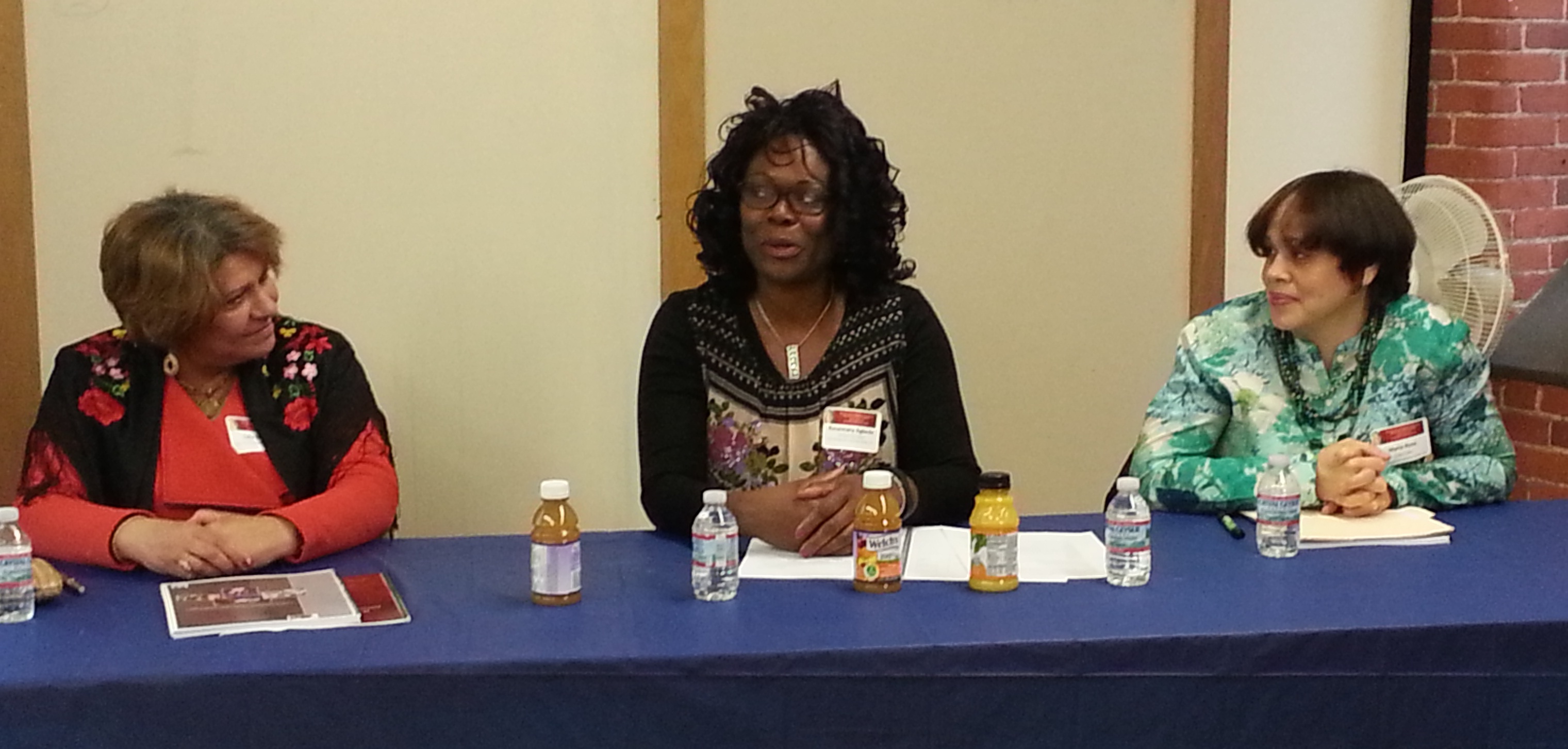Julia Silverio from the Dominican Republic, owner of Silverio Insurance Agency in Lawrence, MA, believes that small-group discussion is one of the mediums where “the struggles and accomplishments of immigrants can really be brought to light.” She was one of three immigrant entrepreneurs who joined The Immigrant Learning Center, Inc. (ILC) Public Education Institute to talk about “The Vital Role of Immigrant Entrepreneurs in Massachusetts.”
On April 5, 2014, The ILC Public Education Institute participated in a Lawrence History Center symposium on “The History of New Immigration into Lawrence, MA, and Similar Communities.” The symposium was led by Susan Grabski, the Society’s executive director, and Robert Forrant, professor of history at the University of Massachusetts Lowell. Forrant invited The ILC Public Education Institute to participate after discovering its research studies on Massachusetts immigrant entrepreneurship.
Held at the historic Everett Mills in Lawrence, the symposium brought together academic, community development and urban planning communities to learn more about immigrants and their economic and cultural impacts.
Denzil Mohammed and Chiara Magini of The ILC Public Education Institute led a 75-minute session on “The Vital Role of Immigrant Entrepreneurs in Massachusetts.” Following a presentation of research, three entrepreneurs shared their stories with attendees: Silverio; Rosemary Agbede from Nigeria, owner of Unique You Salon in Lowell, MA; and Maria Rosa from the Dominican Republic, owner of Yeska Cakes in Lawrence, MA.
Silverio, winner of a 2012 ILC Immigrant Entrepreneur Award, said that immigrant women were more likely to start businesses in the U.S. than in their places of birth. “Women are seen as equal to men in the U.S. and so have similar opportunities to pursue entrepreneurship,” she said. (Hear more from Silverio in a video interview.)
Talking about how her business helped revitalize her neighborhood, Rosa explained how she converted an empty, run-down space into an attractive storefront that brought new customers to the area. Detailing the challenges of starting a business as an immigrant, Agbede said, “Accessing bank loans was very hard because I didn’t know how to build my credit history…but I did not let that deter me. I had a dream and I was determined.”
To learn more about the positive impact of immigrant entrepreneurs, see The ILC Public Institute’s research, video interviews and Immigrant Entrepreneur Hall of Fame.

